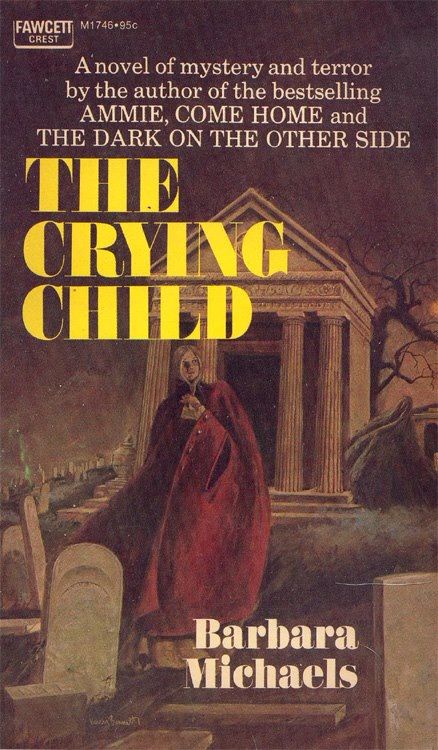I slept very strangely last night–for the first time in a very long time I had what I call “stress dreams”; they’re really not quite nightmares, in that they aren’t scary, but rather me dreaming about something that causes me stress. It’s been years since I’ve had one of these–I guess you could say that the ‘test I didn’t study for’ or ‘went to class naked’ fall into that category; I’ve never had either of those–but this was one in which I was going to have to go on stage and perform for something to do with work; but for some reason I needed to have a cricket and as the time for me to go on stage drew nearer, the cricket I was given got away and I couldn’t find it; finally had to go outside and try to catch a new, untrained (it was a dream; of course none of it made the slightest bit of sense) and of course, for some reason my parents were in the audience and I couldn’t find a cricket. I woke up around six and thought, do I want to go back to sleep and into that dream again? But I closed my eyes again, figuring the dream was interrupted, but no–back into this weird dream where I had to have a cricket and go on stage and perform in something vaguely Dickensian.
At seven thirty I woke up again and thought, fuck it, I’d rather be tired than go back into that dream. So I got up and came downstairs to make coffee. And here I am.
I bit the bullet and bought a more expensive (and dependable) vacuum cleaner yesterday–the same model we bought like nine years ago that I didn’t really maintain properly but still managed to work well for nearly seven years; I am going to maintain this one properly–I read the manual, believe it or not–and so part of my day today will include working on the floors. I’m also going to make watermelon gazpacho–I may have to run to the grocery because I need both lemon and lime juice, and I also want to get a bag of ice so I can make a proper dirty martini this evening–still working on getting the taste right–and I also want to work on my writing some as well as get to the gym. I also recognize this is a rather ambitious program for the day; there’s reading I need to get done as well–I really want to finish Robyn Gigl’s By Way of Sorrow, which I was enjoying before I got distracted from it; a great debut by a trans author (which we need more of, by the way), and I’m not really sure what distracted me from it, to be honest…but I’ve not really been doing much reading for a while–but I am enjoying Robert Caro’s The Power Broker.
I guess I should say I am not reading anything new to me, because that is more accurate. I think I mentioned yesterday that I got a lovely tweet from a reader about Mardi Gras Mambo the other night, and then I tried reading it again–I have the ebook on my iPad–but for some reason there was an issue I couldn’t resolve to get it open, and it kept freezing my Kindle app (don’t come for me, I also have iBooks and Kobo and generally try to buy ebooks through platforms that allow percentages to go to either non-profits or independent bookstores; and I also take advantage of deeply discounted sales and I especially love when the books are offered free); yesterday I deleted the app and redownloaded it and voila! Problem solved. I haven’t reread the book in a really long time–I’ve not reread any of the Scottys in a really long time–and as I was reading (skimming mostly) I was remembering things from the time I was writing the book: that the original idea was vastly different from the final iteration; I actually stopped writing it and then trashed everything I had written and started over; the second iteration was also significantly different from the final, and something else happened that kept me finishing; and when I finally went back to finish it I trashed the entire thing for yet a second time and started over completely. It took me–because of the stops and starts–much longer to write than anything else I’ve ever written (that was published); I remember often referring to the book as my own personal Vietnam (although now Afghanistan would be more indicative of endless quagmire) and–now that I think back on it–the inability to finish this book was why I started blogging in the first place. I needed to get back into the habit of writing every day, so I could kickstart my creativity and finish the damned book.
I digress.
But as I was rereading/reskimming, I was amazed at how fucking complicated the plot was, and how much juggling was required to not leave loose ends, to not contradict things that had happened, and I remember that last summer before Katrina (the book was turned in three weeks before that bitch came ashore) how much work I had to do on that manuscript; how I had to keep checking and double-checking to make sure it made sense and I had the right people in the right place and that it was possible for characters to move around the way they did; and how I wanted the pacing to be completely frenetic and crazy because it was taking place over that final weekend of Carnival, and how badly I didn’t want to the book to end the way it did. It was also during the writing that I discovered that the original way I’d planned the trilogy (once I knew it was going to be more than a standalone) couldn’t be completed in this volume and that the personal story–always intended to be resolved by book three–was going to have to roll over into a fourth book….which I eventually (thanks to Katrina) began to think would never happen. I hated leaving it as a trilogy…but how do you write a funny book set in New Orleans after Katrina? I couldn’t think of any way to do it, and when I finally did start Vieux Carré Voodoo, I just jumped ahead a few years. (Although now I am thinking I can go back and do that very thing; maybe I could do a couple of post-Katrina Scottys, to give me some breathing space away from the pandemic and go back to him being younger?) It also made me realize, again, that a lot of the post-Katrina Scotty books I’ve done didn’t have very complex or complicated plots; they were always very straightforward and simple until Royal Street Reveillon. I have several ideas of what to do next with Scotty, and rereading/reskimming Mardi Gras Mambo made me realize–instead of deciding which plot to do next, why not do them all in one? Why NOT write another complicated, complex, all over the map plot with subplots galore? It’ll be hard work, of course, but why am I shying away from hard work?
I’ve also been researching more about folk tales and legends of Louisiana; I saw that someone is doing a graphic novel built around one of them–the Grunch–and as I started digging around into that particular myth/legend, a Grunch story started forming in my mind, and I soon realized Monsters of Louisiana could happen very easily; again, it’s a matter of time to write and time to research.
I did manage, around groceries and getting the mail and trying to get organized and relaxed and everything, to put about another 1200 words into “Festival of the Redeemer.” I also remembered that I had made, years ago, a Pinterest board for Venice, and so I visited it yesterday to look at the pictures to help me with a dream sequence I am writing into the story–I needed to see Venetian Carnival costumes, and oh, did my Pinterest board ever have some fantastic images pinned to it! I had completely forgotten that I’d made a Pinterest board when I was writing Timothy to help out, with images of the house I was basing Spindrift on, and images of rooms to use for descriptions, and so forth…and as I scrolled through these amazing images on my Venice board, I kept thinking to myself, why the fuck don’t you use this website for images for works in progress? This would have come so in handy for the two you’ve just turned in, you fucking moron.
And seriously, it really is a wonder I have a career anymore. I have all these wonderful tools at my disposal to make it easier to write things and then never use them.
And on that note, this floor isn’t going to vacuum itself. Catch you tomorrow, Constant Reader.






